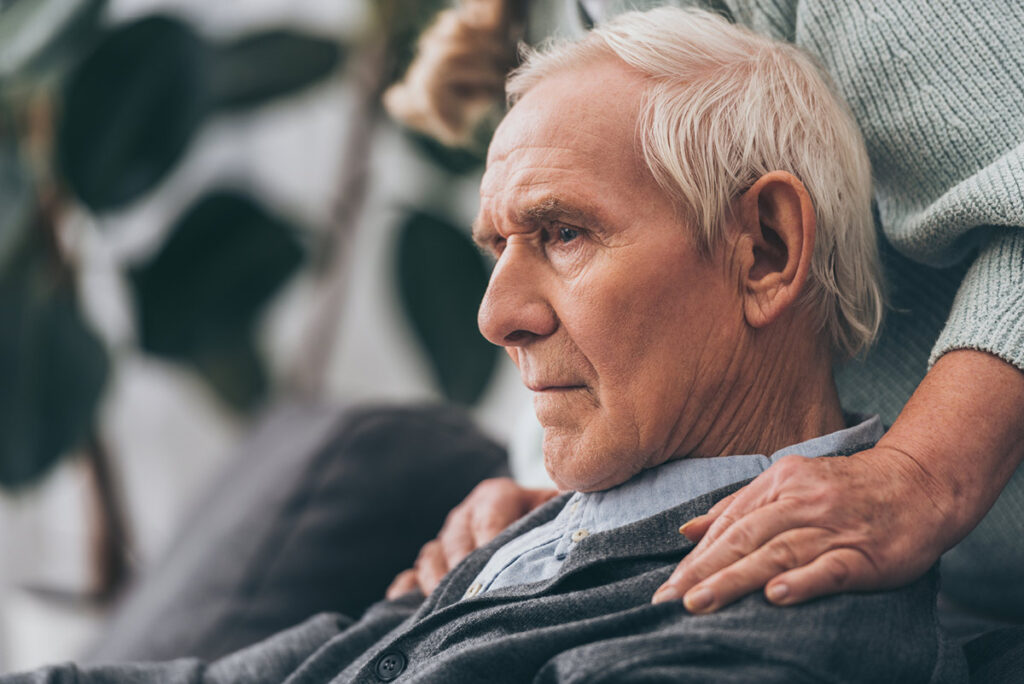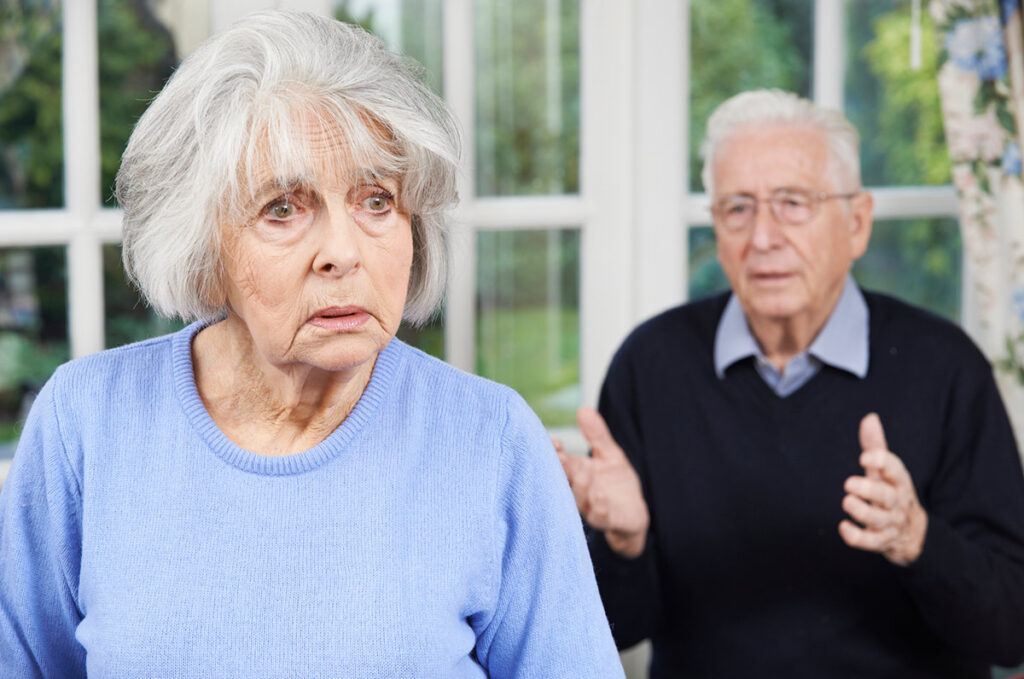How to Respond to Anger and Aggression in Dementia

As a caregiver for someone who is living with dementia, you probably expected your loved one to exhibit memory loss and confusion. You likely knew you would one day be responsible for helping him with activities of daily living such as dressing, eating and going to the bathroom. But many caregivers are taken aback when having to deal with anger and aggression in their loved ones. Although anger and aggressive behavior are common for those with dementia, caregivers are often not equipped to handle these outbursts or understand why they occur.
Dealing with dementia and anger in your loved one can be exhausting, overwhelming and confusing. It can also be frightening. Understanding why your loved one is exhibiting these behaviors and how you can deal with them is crucial.
Dementia and Anger: Why Does Dementia Cause Anger?

To understand why your loved one feels angry, it’s important to understand the changes occurring in her brain as a result of dementia. Dementia causes neurodegeneration in the brain which leads to the loss of rational thinking. Judy Cornish, founder of the Dementia & Alzheimer’s Wellbeing Network® (DAWN), explains that this loss of rational thinking is often at the root of anger and aggression in someone who is living with dementia.
Rational thinking includes the ability to:
Any time you ask your loved one to use his rational thinking skills, he will get upset and can act out in anger. He’s not mad at you. He’s frustrated because he can’t do what you’re asking.
Other reasons your loved one may lash out in anger include:
Physical discomfort: Hunger, pain or needing to go to the bathroom could be the underlying cause of your loved one’s anger.
Caregiver burnout or stress: Those with dementia are very attuned to their caregivers and how they are feeling, especially toward them. If you are stressed or burned out, they will know and may react with anger or aggressive behavior.
Medication side effects: Some medications can affect your loved one’s behavior. Be sure to ask your doctor about any potential side effects.
Paranoia or delusions: Certain types of dementia can lead your loved one to feel paranoid or think she is seeing things that aren’t there. This can cause fear, anger and confusion.
How to Deal with Anger Triggered by Dementia

If your loved one gets angry or exhibits aggressive behavior, try to de-escalate the situation as much as possible.
You can do this in a few ways.
Identify the cause of the anger.
Is your loved one hungry or in pain? Is she confused or in a strange environment? Try to identify what might be causing the outburst and rectify it. Offer a snack or a drink. Take her away from the noise and into a calm room. This can help calm her down and alleviate some of the anger she is feeling.
Focus on intuitive thinking.
Judy Cornish explains that just because rational thinking is lost over time for someone with dementia, this does not mean intuitive thinking is lost. Intuitive thinking includes the five senses, core feelings like joy and love, observing others’ feelings and enjoying beauty. Trying to rationalize your loved one out of his anger or frustration will likely lead to further anger or frustration. Instead, focus on the thinking skills they do have. What do they see, taste and smell? How are they feeling? How do they think you’re feeling? This will help them feel competent and capable, rather than confused or embarrassed because they are unable to use rational thinking.
Geropsychologist Dr. Natali Edmonds offers additional tips for dealing with a loved one’s anger and aggression:
If your loved one is having regular or intense outbursts of anger or aggression, be sure to talk to your healthcare provider. They can provide insight on what to do, if medication is the culprit or other providers who may be able to help.
Anger and aggression can be difficult to deal with, especially when your loved one rarely showed anger before her diagnosis. Remember this is a normal part of the disease and you aren’t powerless. Working to understand how dementia affects the brain and your loved one and what you can do to de-escalate aggressive situations when they arise will help you feel equipped and empowered to deal with your loved one’s emotions while allowing your loved one to feel seen, heard and understood.





